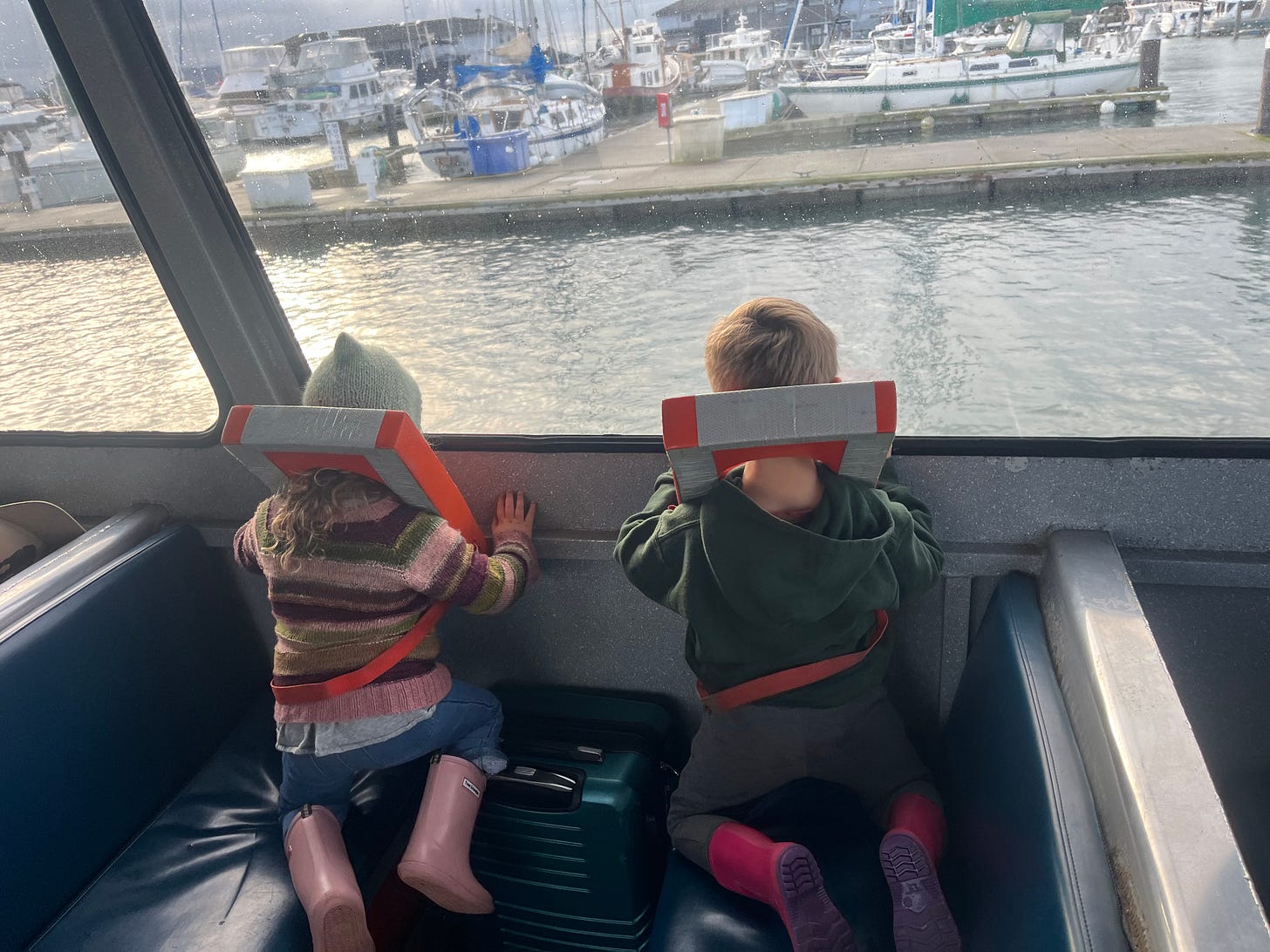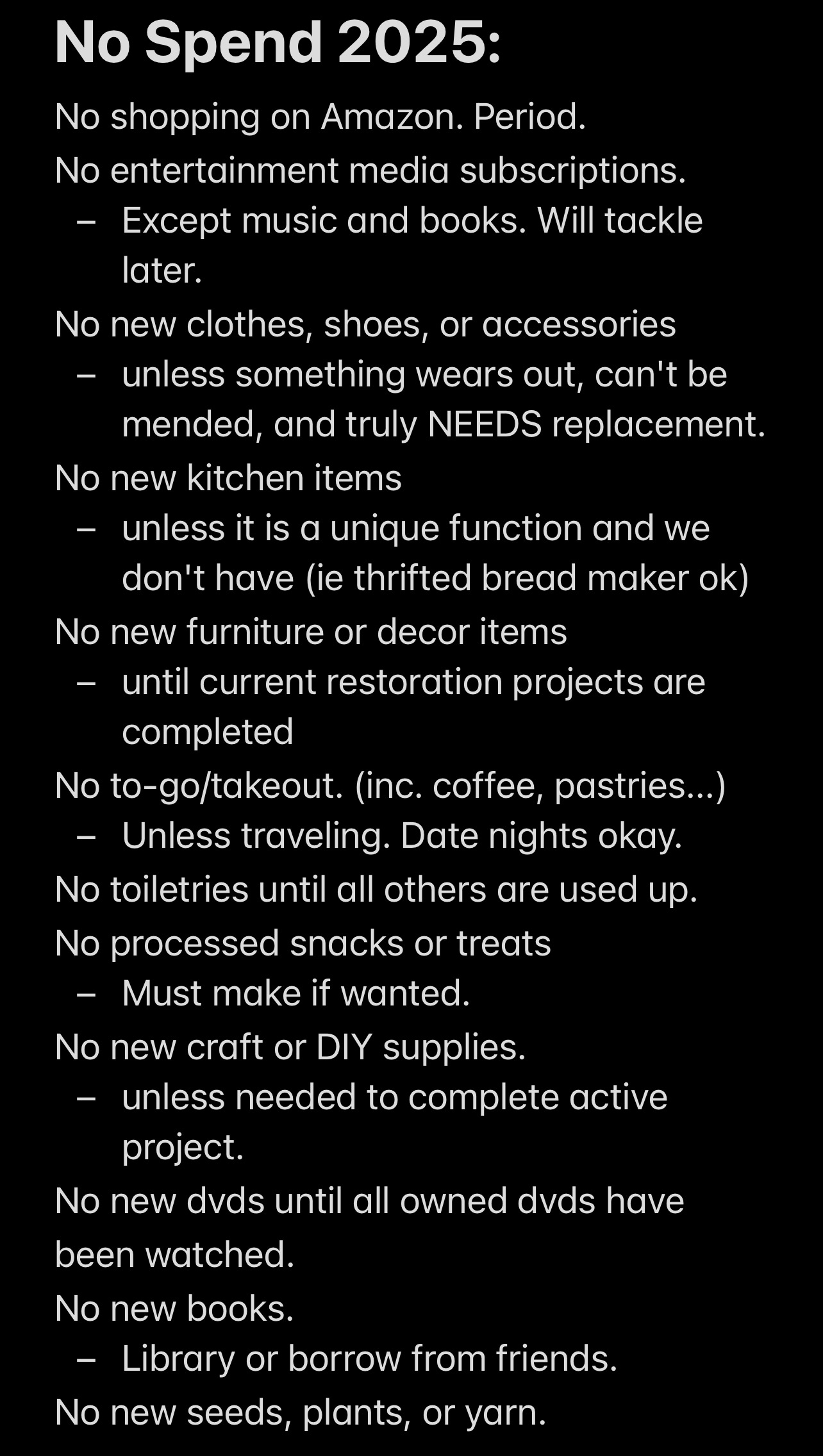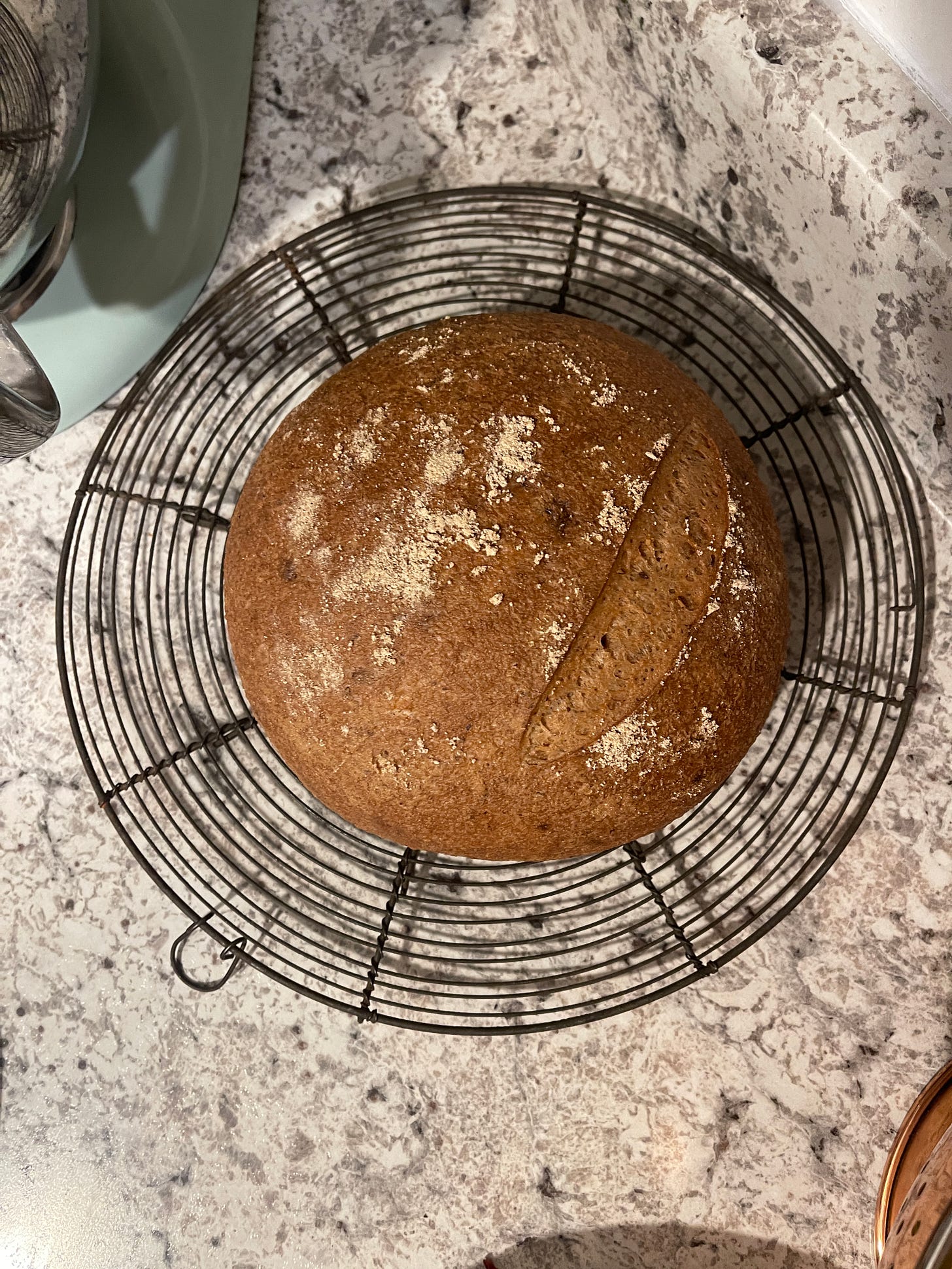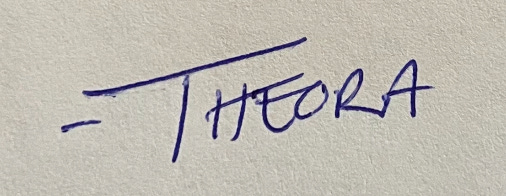boiling frogs: Economic Boycotting 101 and the hidden costs of hyper convenience
simple anti-consumption lifestyle changes sparked and fueled by pure spite
I’m not doing this to save money, although that’s a plus.
I’m not doing this to pay off debt, although I imagine it will help.
I’m doing this out of pure spite.
Our family has decided to do a “No Spend” Challenge in 2025 because we are done with siphoning the money we earn into the coffers of mega-corporations and the pockets of morally-bankrupt billionaires.
The concentration of wealth has spun so intensely out of control and those individuals in power who have absorbed our collective wealth into their private bank accounts do so little proportionally for the betterment of their communities.
Maybe you are done with it too. But it probably feels too overwhelming to know where to start or to believe that you can truly make a difference. I’m here to interrupt that doubt.
I’m not being naive or idealistic when I say you can make a real difference.
Today I want to plant seeds on how while also selling you on all the amazing, unexpected gifts that will come from taking your financial voice back for a week, month, or year!
(Below you’ll find both our family’s No Spend guidelines as well as a list of all the obvious and NOT-so-obvious benefits of taking on a “No Spend” Experiment of your own. Even if you reduced your spending by just 5-10-20%, wouldn’t that feel good?)
For most of us, if we look closely at our actions, it feels almost impossible to live in full alignment with what we believe is right for us as soft, yearning creatures and our ailing planetary home.
Just look at plastic. Virtually everything is packaged in or made of plastic, which we now know can’t be recycled (and never could be because the plastic manufacturing companies have lied like crazy about it for decades). It is quite literally poisoning us and our oceans and our bodies. The cost of plastic convenience is the possibility of a healthy planet for our children and their children. That’s not a price I’m willing to pay.

We say we want to protect the planet, and that we believe in conservation but unless we are prepared to be hyper-vigilant, bend over backwards, boycott most products in our local grocery stores, and are willing to go without things we use or need everyday, we are already participating heavily in the snowballing problem against our will.
It’s overwhelming, isn’t it?
But I urge you to reject this first flush reaction of it being “too hard” to make a shift. In fact, the shift is MUCH smaller than you might think.
We each carry more power than we remember.
Especially when it comes to using our money to vote.
Everyone of us will spend money each week on what we need and want… so why not ensure that we are doing it in a way that builds momentum for REAL GOOD?
The first part of a “No Spend Experiment” is to recognize that you will still have to spend, but that you can leverage the power of your spending intentionally in a way that profoundly impacts your community.
Ever time you spend a dollar, you are voting for the world you want to be.
Step 1: Slow Down and Ask Real Questions
Ask yourself if you really need it or if it will add real value and contribute to your life. Determining that something will improve your quality of life, is different than impulse buying something because you think you want it. The first type of purchase deepens peace of mind and sparks lasting joy. The second often activates regret, shame, frustration with self, or financial anxiety.
Step 2: See What You Already Have
If the answer is yes, you do need it, then you ask yourself if you already have something you can use. Example: You want to put up a clothesline. Instead of getting a new one, you go rummage around in your garden shed, garage, or miscellany drawer and you find a big bail of chord you forgot you had. Voila! $15 saved, you can put it up right now, and you’ve even freed up a little room in one of your utility spaces.
Step 3: Source Responsibly and With Intention.
If you need to acquire something, source it in one of the followings ways:
- get it for free (think borrowing from a neighbor, a friend, the library, or a buy-nothing group).
- get it second hand (Goodwill, garage sale, online marketplaces/apps, etc. This saves things from the landfill and supports second-use economies.)
- get it locally (there are local shops that do have what you’re looking for. Hardware stores and grocery stores have home decor sections — The biggest objection I’ve heard is that people who live in small towns can’t get certain things where they live. My reply to this, is at least try and look around! I live on a small, rural island with only 8,000 people where shops close for 1-2 months each year… and I have still been able to find everything I truly need so far. Take it as a challenge! Get scrappy, support local shops, keep your precious wealth IN your community.)
- get it directly from the maker (instead of a middle-man distributer like Amazon that takes a cut from each sale, go directly to the maker’s website and purchase it from them. If the object isn’t worth $5-7 in shipping, then the reality is you probably don’t actually need it.)
There is something magical called the Multiplier Effect. Dollars you spend locally circulate in your local economy 2 - 4 times more than money spent non-locally at companies like Target, Walmart, Amazon, etc. For every $100 spent at local shops, two-thirds of that stays in the community in the form of wages, taxes, and support for other small businesses (source).
On the other hand, “buying from Amazon circulates just 5.8 percent of revenue into a local economy”. So even if all you did was switch from buying from megacorporations that perpetuate the horrors of fast fashion, throwaway culture, and exorbitant salaries for their executives (Walmart’s top executives make $264,997 a DAY.), you’d be making an immediate and real impact on the vitality and sustainability of your community. “Buying from a local, independently owned [store] creates 4X more local economic activity than buying from Amazon.” (Source: Indiebound).
You’ve probably noticed how I’ve become radically suspicious of hyper-convenience. It has created an almost inconceivable cancer of over-consumption and robbed us of the opportunity to solve problems in interesting and creative ways that stretch our brains.
When I mend something, I feel more kinship with the physical landscape around me. These repairs become marks of our journey together, become part of our shared story. It’s my way of giving thanks to a belonging that has provided me with something. A blanket that has given me comfort, a sweater that has kept the chill at bay, a bowl I love that has cradled potatoes, clementines, or acorn squash from the garden.
There is a massive cost to Hyper-Convenience. Starting with the real cost of spent money. Then there are the more invisible costs of carbon footprint, trees milled and petroleum processed to create packaging, loss of self-sufficiency, loss of community connection, loss of community vitality and resiliency, the ever growing increase in dependency on corporations we abhor, and on and on and on.
The amazing news is it doesn’t have to be that way and these acts of micro-dissent feel incredibly satisfying.

This is about divesting from the Cult of Hyper-Convenience that has made us addicted to 1-click shopping and the delusion that we should be able to have anything and everything yesterday.
“No Spend” Doesn’t Mean Zero Spend
You’ll notice that “No Spend” doesn’t mean zero spending, it means examining your spending and cutting out what isn’t aligned with your values or the future you want to be part of creating. We all have to spend to survive on shelter, food, hygiene, and so on. There is also value in spending in ways that enrich your quality of life. You’ll see that spending money on date nights is allowed on our list. We believe in spending money at local restaurants and the independent movie theater, and we value investing in romance because it’s one of the things that makes Life magical. We’ve chosen that investment and it aligns with the community health and future we want to create. YOU get to decide what you cut and what you prioritize. It’s not about perfection. It’s about progress, and imperfect progress is still good progress.
All of the obvious and not-so-obvious probable benefits:
You will save money. Woohoo!
You will save energy from not having to manage the constant influx of stuff. You will reduce how much mental labor you spend on deciding where to put it, where to store the extra, when to throw it away, if it’s recyclable, whether it’s made of materials that are toxic for your home and family, etc.
You will save time. It may seem counterintuitive because people think that “running to the store” will take 30 minutes but what they don’t realize is that that one errand will often source a higher quality product, open you up to opportunities to interact with kind neighbors, produce personal recommendations from real people in your community, and having only 2-4 quality options to choose from instead of 1,000 crappy options makes decisions a LOT simpler and easier. How many times have you spent more than 30 minutes comparing products online? If you’re like me, it’s more than you’d care to admit. The peace of mind is worth it, I promise!
You will feel more ethically connected to yourself because your actions will better reflect the values you want to practice and the future you want to be part of creating. You’ll feel more at peace knowing the ways you’ve divested from the engine that is filling out landfills, atmosphere, and oceans beyond repair.
You will experience increased appreciation for the well-made belongings you have and the stories you’ve woven into their existence from mending or repairing something that has broken or torn but is otherwise still a useful or meaningful object. Think of the Japanese tradition of kintsugi, where gold is used to rebuild broken ceramics “highlighting cracks and repairs as events in the life of an object, rather than allowing its service to end at the time of its damage or breakage”. The idea that something’s beauty changes and can even grow when flaws or imperfections are embraced can infiltrate beyond just inanimate members of your household.
You will take pride in becoming a Knowledge Keeper who holds useful wisdom to pass on to loved ones and future generations on how to care for, fix, make, and repurpose tools and items.
Your self-esteem and internal sense of power will grow as you witness your own ability to fix and make things you didn’t know you could. Figuring out a resourceful solution to a problem instead of throwing money at it feels SO DAMN GOOD and the enduring legacy is that you’ll believe more deeply in your own capacity. Instead of feeling unsure or like you are trapped in your reliance on mega-corporations as your only source for the supplies you need, you’ll feel capable, confident, and empowered to figure something closer out.
If you experience financial anxiety, it will diminish. Simply put you will be spending less money and enjoying more time living on the frontline of your own life.
At the core of it all, you will feel more spiritually at ease and calm because you will have deepened the intimacy with which you are leading your life while simultaneously withdrawing your support of colossal systems and forces you are morally opposed to.
Extras and Acknowledgements:
Thank you to Amy Bauer for the well-timed nudge to make this a priority in 2025! Your spite is powerful!
When we want to make a lifestyle shift in our house, we’ve learned that we are more effective at making the change when we front load our will power with compelling, evocative information. This looks like listening to podcasts, reading books, or watching a documentary to drive the point home so that we feel energized about the shift rather than resistant to it. This time we watched Buy Now!, which helped put a bad taste in our mouth about how deeply and intentionally we’ve been manipulated by corporations like Amazon. If you want some fuel in your gas tank to feel excited and good about this shift, rather than daunted, give it a watch!
Part of our No Spend push has inspired me to explore what I can make at home for less. Regular gluten free bread, like most store bought foods these days, is expensive and the prices just keep going up. Artisan gluten-free bread more so and it’s almost impossible to find, so I decided to to try making some. I’ve been making 2 boules a week at about 10% of the cost of what’s available in stores. Aran Goyoaga has a splendid GF baking book that absolutely wonderful!
Regardless of where you live, I’d recommend figuring out who the suppliers and farmers are in your area for daily goods - vegetables, meat, soap, clothes, grains, etc. With the massive tariffs proposed by the incoming presidency that cost will be passed on to the consumer. Everything is going to get a LOT more expensive. Figuring out who you can buy from directly could become an economic necessity for your family and the livelihood of your community. Look up local Food Hubs, Community Supported Agriculture (CSAs), and Farmer’s Markets to get started. Also, who doesn’t love a stroll through the Farmer’s Market??
Consider taking an inventory of the skills you and your friends have - who can build, who can sew, who can do basic repairs or oil changes on vehicles, who is familiar with the medicinal qualities of plants and who cultivates them, who has electrical or plumbing knowledge, etc. Community sufficiency and self sufficiency will be factors we may need to rely on much more heavily over the next few years.
My dear friend - Henry Wolfe - just launched their own Substack newsletter called Heartstone Hermitage and I’d encourage you to check it out. They are one of the most interesting, loving, creative, joy-sparking people I know! I have no doubt that their writing will be too.
A song to mosey along to: (and yes, I want to maybe get back into collecting CDs and divest from Spotify… but that is a frontline for another day. One battle at a time builds the revolution)
until next time,







